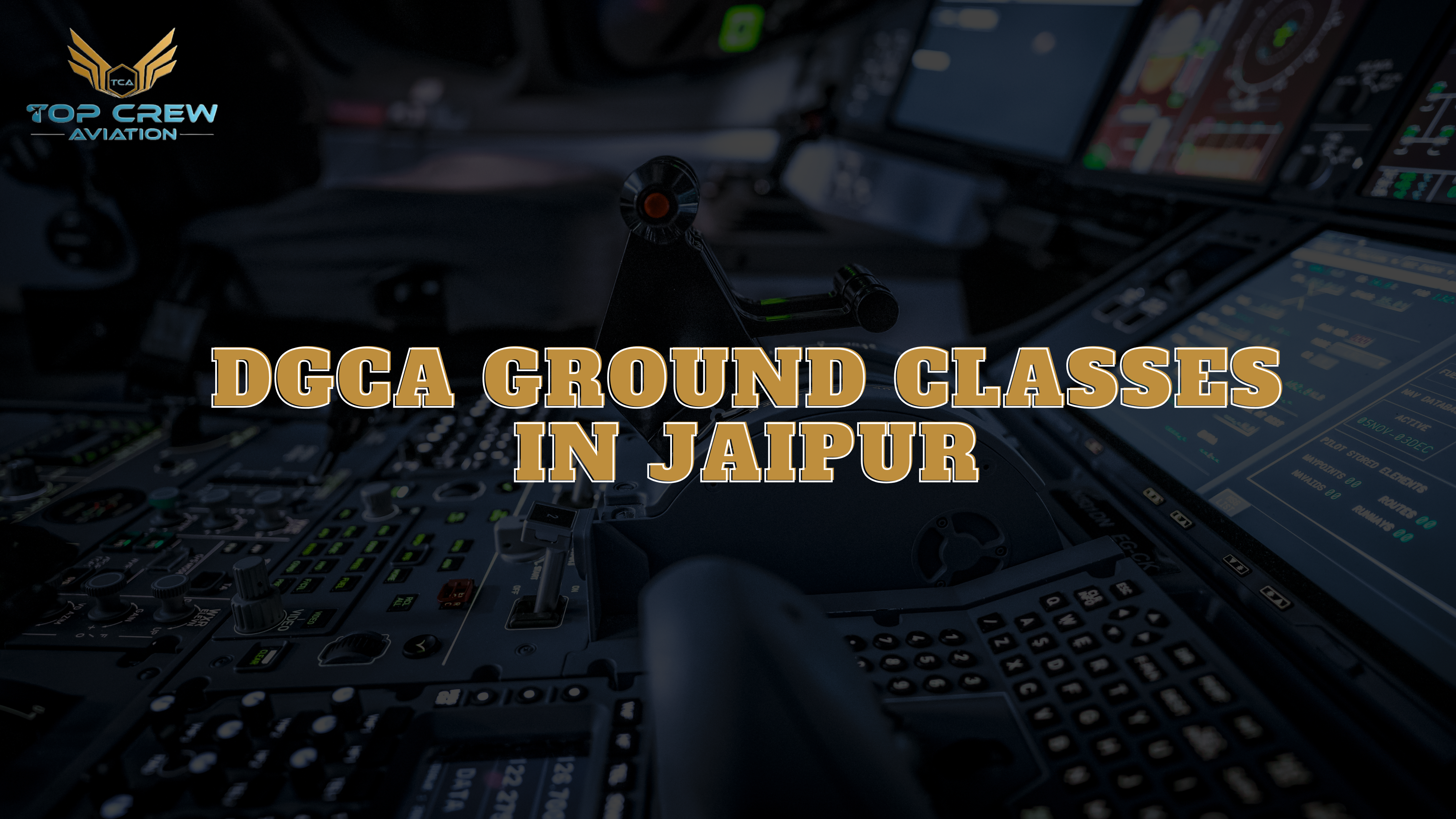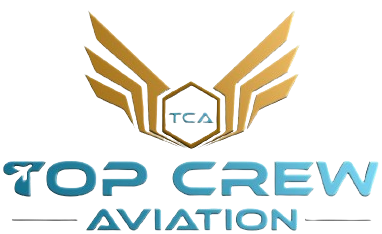
Looking for DGCA ground classes in Jaipur that actually help you clear papers on the first attempt? This guide covers everything—DGCA syllabus, who should join, how to pick the best Jaipur DGCA coaching, fees and batches, a 12-week DGCA exam preparation plan, and FAQs. Whether you’re aiming for CPL or upgrading to ATPL papers, you’ll find a clear, step-by-step roadmap below.
What Are DGCA Ground Classes?
DGCA (Directorate General of Civil Aviation) ground training prepares you for India’s pilot theory exams. Quality DGCA classes Jaipur focus on concept clarity, DGCA-style question practice, and mock tests. Typical coverage includes:
- Air Regulations: Indian/ICAO rules, privileges & limitations, procedures, AIP/NOTAM/AIC, ATC basics, airspace, separation, wake turbulence.
- Aviation Meteorology: Atmosphere, winds (gradient/geostrophic/local), stability, clouds/fronts/thunderstorms, icing/turbulence, TAF/METAR/SIGWX decoding.
- Air Navigation: Latitude/longitude, charts/projections, time–speed–distance, compass/gyro, 1-in-60, wind triangle, VOR/DME/NDB, RNAV basics, GNSS intro, performance/fuel planning (overview).
- Technical General: Airframe, piston/turbine engines, propellers, electrical/hydraulic/fuel/pneumatics/pressurization/air-conditioning systems, pitot-static/gyro/engine instruments, limitations & defects.
- RTR(A) guidance: While RTR(A) is conducted by WPC, most Jaipur ground schools offer oral/RT phraseology prep. (Note: RTR(A) is separate from DGCA theory—confirm timelines/eligibility on official portals.)
Pro tip: Always verify current rules, attempt limits, and schedules on eGCA. Policies can change.
Why Choose Jaipur for DGCA Coaching?
Jaipur DGCA coaching offers a focused ecosystem for serious aspirants:
- Study focus: Fewer big-city distractions; easier to keep a routine.
- Connectivity & stay: PGs/hostels/apartments near coaching corridors and transit.
- Faculty depth: Access to instructors with airline or military backgrounds.
- Peer community: Meet students targeting leading FTOs in India and abroad.
- Budget friendly: Student-oriented cost of living with libraries, cafés, stationery, print shops.
If you’re combining ground with pilot training Jaipur (flying), plan medicals, timelines, and batch hours carefully.
Who Should Join & Basic Eligibility
- Aspiring CPL ground classes candidates (first-time DGCA takers).
- PPL holders transitioning toward CPL.
- Engineering/Science grads eyeing a cockpit career and wanting structured prep.
- Re-attempters who need a disciplined course and mock-test driven improvement.
Before you join:
- Review DGCA’s latest guidelines on eligibility and attempt rules (via eGCA).
- Keep your Class 12 (with Physics & Mathematics) documents handy.
- If you plan to club flying soon, understand Class 1 Medical timelines and validity.
Tip: DGCA notifications can change. Always cross-check current schedules and rules on the official portal when you register for exams.
Subject-Wise Syllabus Snapshot
Air Regulations
- Rules of the air (India/ICAO), AIP, NOTAMs, AICs
- Flight planning responsibilities & documentation
- Airworthiness basics; MEL/CDL overview
- Licensing requirements, logbooks, operational approvals
- Airspace classes, ATC procedures, separation/wake turbulence
Aviation Meteorology
- Atmosphere structure, pressure/temp, lapse rates
- Winds: gradient, geostrophic, local, wind shear
- Stability vs instability, clouds, fronts, thunderstorms
- Visibility/hydrometeors, icing, turbulence
- Met charts; TAF/METAR decoding; SIGWX; flight weather briefing
Air Navigation
- Latitude/longitude, charts & projections
- Time–speed–distance, ETA/ETE, conversions
- Compass/gyro principles; variation & deviation
- Dead reckoning, 1-in-60, wind triangle
- Radio nav (VOR/DME/NDB), RNAV basics, GNSS intro
- Performance planning & fuel (overview for integration)
Technical General
- Airframe; piston & turbine engines; propellers
- Systems: electrical, hydraulic, fuel, pneumatics, pressurization, air-conditioning
- Instruments: pitot-static, gyros, engine instruments
- Limitations, performance basics, troubleshooting mindset
- Human performance (overview), CRM basics linked to systems
Choose DGCA classes Jaipur that teach concepts first and shift to question banks/mocks later—with regular, exam-style analytics.
Course Structure & Duration (Typical Patterns)
- Single-subject tracks: ~6–10 weeks per paper (Regs/Met/Nav/Tech).
- Integrated CPL Ground Course: ~4–6 months covering all subjects with rotating timetable, weekly sectionals, monthly full-length mocks.
- Fast-track batches: Compressed schedules for re-attempts or experienced candidates—ensure comprehension isn’t sacrificed.
Sample weekly rhythm:
- Mon–Fri: 2–3 hrs class + 1–2 hrs guided practice
- Sat: Topic revision + sectional mock
- Sun: Full-length mock or doubt-clearing clinic
How to Choose the Right DGCA Ground School in Jaipur
Use this 10-point checklist when you compare institutes:
- Faculty depth: Airline/military or seasoned instructors across all subjects.
- Pedagogy: Concept-first lessons → curated question banks.
- Mocks & analytics: Sectionals + full-lengths, error logs, topic-wise charts.
- Doubt support: Small batches, 1:1 slots, office hours, peer groups.
- Study material: Updated notes, CAR extracts, solved examples, formula sheets.
- LMS/App: Recorded sessions, progress tracking, doubt tickets.
- Attempt planning: eGCA help, session targeting, paper sequencing.
- Flying integration: Sync theory clears with FTO joining (India/abroad).
- Transparency: Clear fee breakup, inclusions/exclusions, refund policy, re-attempt support.
- Alumni evidence: Realistic pass data; speak to 2 recent grads.
- Red flags: Only question-bank rushing, irregular schedules, hidden costs, high-pressure sales.
Red flags: Only “question-bank rushing,” no concept teaching, irregular schedules, hidden costs, or pressure sales tactics.
Fees & Budgeting: What to Ask Before You Pay
Ask for a written breakup before paying:
- Tuition per subject or integrated package
- Inclusion of mocks (sectional/full-length)
- Study material & LMS access
- Extra doubt classes/remedials
- Admin support (forms, eGCA guidance)
- Applicable taxes/fees
Monthly living costs in Jaipur (typical):
- Accommodation (PG/hostel/apartment)
- Local transport & meals
- Photocopying/stationery
- Optional sim sessions/airport visits (if offered)
Don’t overpay for “lifetime access.” Prioritise strong teaching, focused mocks, and timely mentorship.
Smart Study Strategy (12-Week Plan You Can Adapt)
- Weeks 1–2: Foundations
- Build Nav formula lists; decode METAR/TAF basics; skim CAR structure; map aircraft systems.
- Daily target: 2 hrs concepts + 45 mins light practice.
- Weeks 3–6: Depth + Sectionals
- One major topic per subject each week.
- Start a mistake log (date, Q, concept gap, fix).
- Two sectional mocks/subject/week.
- Weeks 7–9: Exam Orientation
- Alternate full-length mocks (2/week across subjects).
- Time management drills (leave/return strategy).
- Weekly formula sprint (Nav) + decode sprint (Met charts).
- Weeks 10–11: Target Weak Areas
- Sort mistake log by frequency/weightage; fix top 5 recurring errors.
- Mini-vivas with peers on tricky Systems & Regulations.
- Week 12: Taper + Test
- 3–4 full mocks, gentle revision, sleep discipline.
- Day-before: formulas, weather products, light review.
Daily habit: 10-minute after-class recap—rewrite one concept in your own words.
Paper Sequencing & Attempt Planning
A popular two-phase plan for CPL ground classes:
- Phase 1: Air Regulations + Aviation Meteorology
- Phase 2: Air Navigation + Technical General
If re-attempting, start with your strongest paper to rebuild momentum.m.
Exam Day Game Plan
- Time grid: Predetermine checkpoints (e.g., 25% by 30 mins).
- Flag & move: Don’t sink time—tag, move, return later.
- Numerical hygiene: Label knowns/unknowns, write units, box interim steps.
- Chart decodes: Read the legend first, then data—avoid assumptions.
- Last 10 minutes: Triage flagged items from easiest to hardest.
Life in Jaipur While You Study
- Routine wins: Fixed class hours, meals, and sleep—your brain learns patterns.
- Study zones: Libraries/quiet cafés for deep work; phone on Do Not Disturb.
- Peer pods: 3–4 serious peers for fast doubt swaps and mini-vivas.
- Micro-fitness: 20–30 mins daily walk/light training to boost recall.
- Sunday balance: Light revision + mock; leave space for recovery
Final Take
DGCA ground classes are more than just clearing exams—they’re the foundation of your airmanship. Jaipur offers the structure, focus, and community many students need to thrive. If you choose an institute with strong faculty, mock analytics, and steady mentorship—and pair it with a disciplined routine—you’ll not only pass, you’ll be ready for the cockpit.
Frequently Asked Questions
1) How long do DGCA ground classes take in Jaipur?
Single subjects often take 6–10 weeks; integrated batches run ~4–6 months. Fast-track options exist but ensure they don’t skip fundamentals.
2) Can I prepare while doing college/part-time work?
Yes—with a strict weekly plan. Choose batches with evening or weekend schedules and rely on recorded sessions/LMS for catch-up.
3) Should I do RTR(A) prep along with DGCA?
It helps, especially for communication confidence, but pace yourself. If DGCA mocks are lagging, prioritize the DGCA papers first.
4) What’s more scoring—Regs, Met, Nav, or Tech?
It varies by student. Regulations and Meteorology feel direct once you internalize patterns. Navigation rewards method and practice; Tech needs concept clarity.
5) How do I know an institute is genuinely good?
Ask to see lesson plans, recent mock analytics, and speak to two recent alumni. Avoid places that only flaunt posters and not processes.
6) When should I start flying (FTO) relative to ground school?
A common path is to clear most theory first, then join flying. It reduces pressure during flight training. If you join earlier, ensure you can juggle both.
7) What if I fail a paper?
It’s common. Analyze your mistake log, switch to concept-first revision, and do timed mocks. Often, fixing 3–4 systematic errors turns the next attempt around.
Frequently Asked Questions
No FAQs found.



